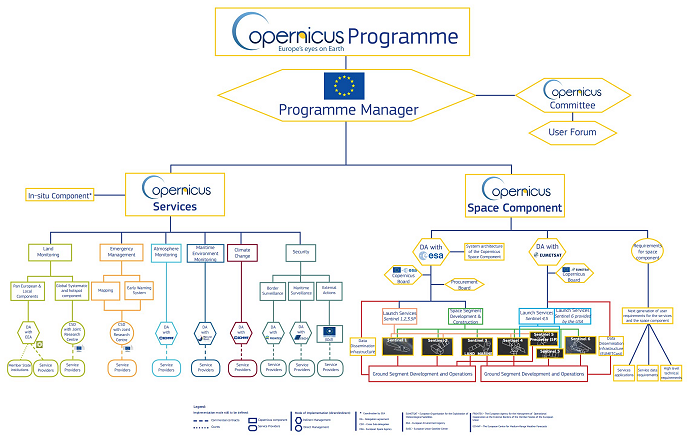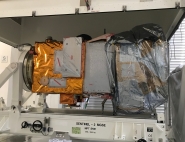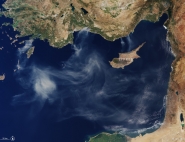Organization
The European Commission has overall responsibility for Copernicus and for coordinating its different components. It oversees implementation of Copernicus, including definition of priorities, user involvement, cost, schedule, performance and procurement. The Commission manages relationships with third-party nations and international organizations, ensuring coordination of Copernicus with activities at national, EU and international levels.
For the implementation of the space component, the Commission has signed two delegation agreements:
- with ESA for technical coordination of the Copernicus space component, as well as definition of its overall system architecture and its evolution based on analysis of user requirements, coordinated by the Commission;
- with Eumetsat, in charge of operating dedicated missions (Sentinel-3 for oceans, Sentinel-4, 5 and 6) and providing access to contributing mission data, in line with its mandate and expertise.
The in-situ component is coordinated by the European Environment Agency, with contributions from member states.
Services are managed:
- in direct mode by cross-delegation with the Joint Research Centre (JRC) for the global land monitoring service and the emergency management service;
- in indirect mode by delegation agreement with the European Environment Agency for land monitoring, the ECMWF (European Centre for Medium-Range Weather Forecasts) for atmosphere monitoring and climate change services, Mercator-Ocean for the marine environment monitoring service, the European Agency for the management of the operational cooperation at external borders of the EU member states (FRONTEX) for the border surveillance service, and the European Maritime Security Agency (EMSA) for the maritime surveillance service.



